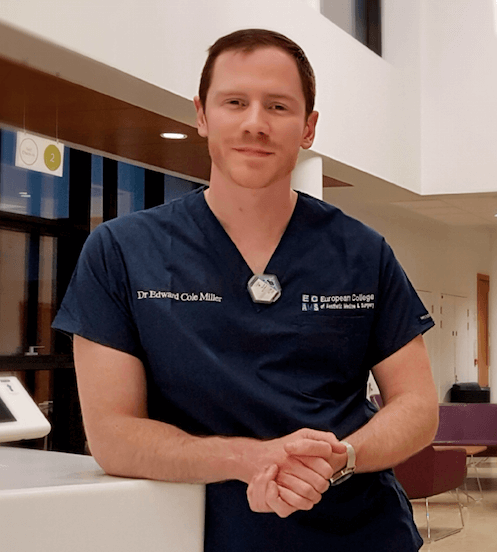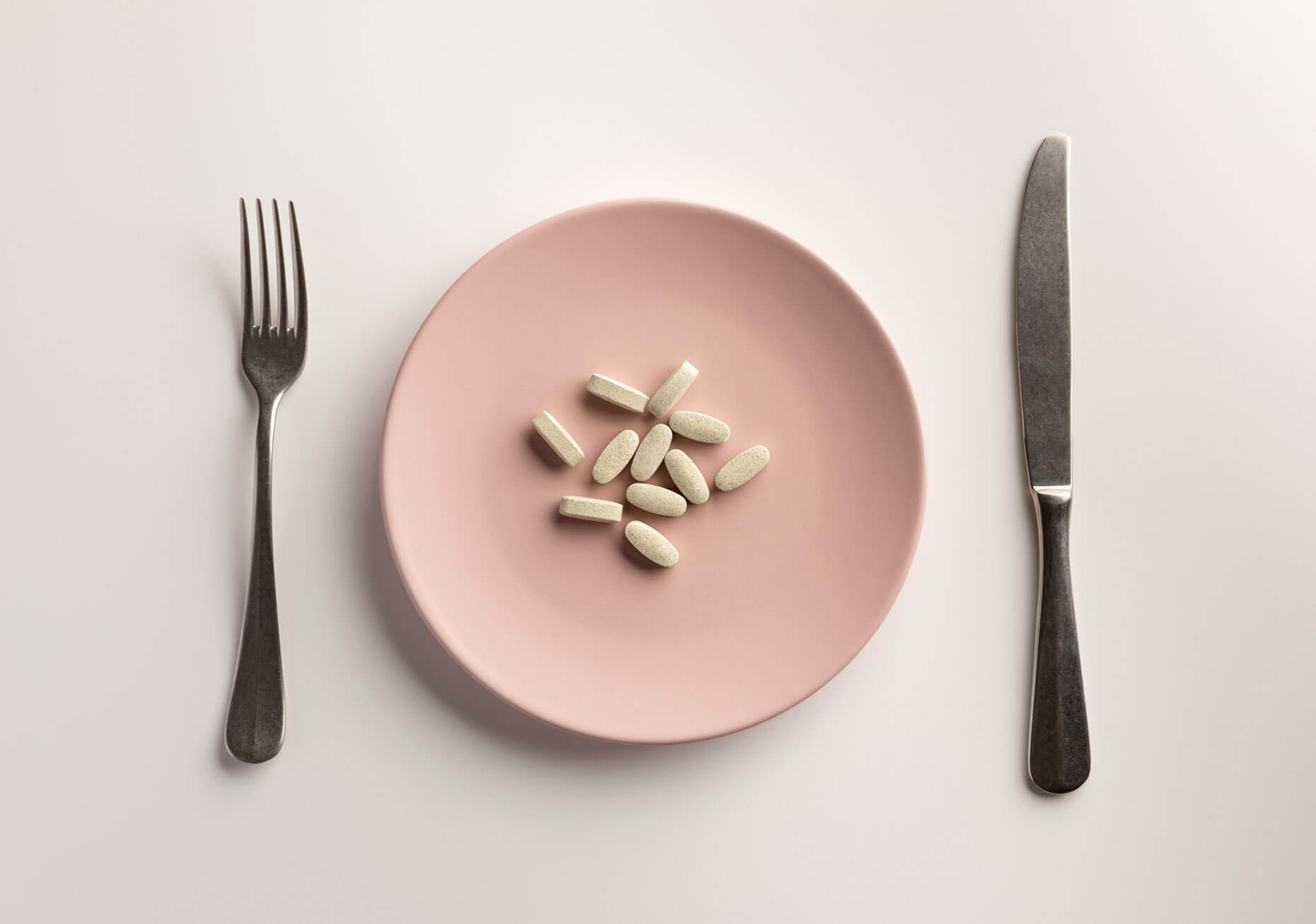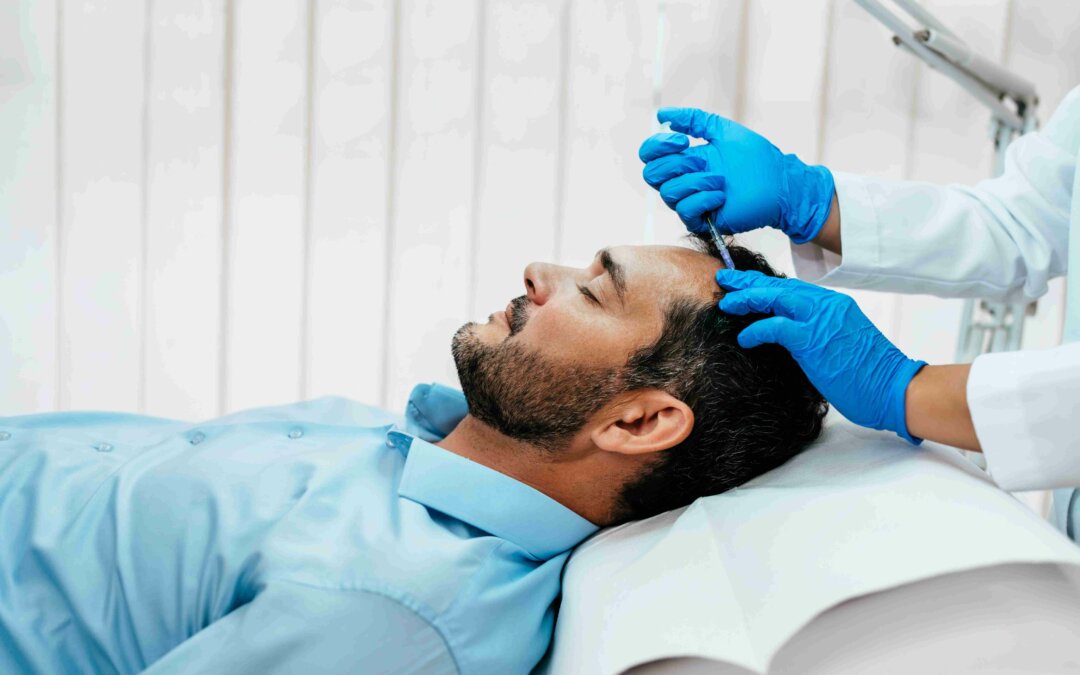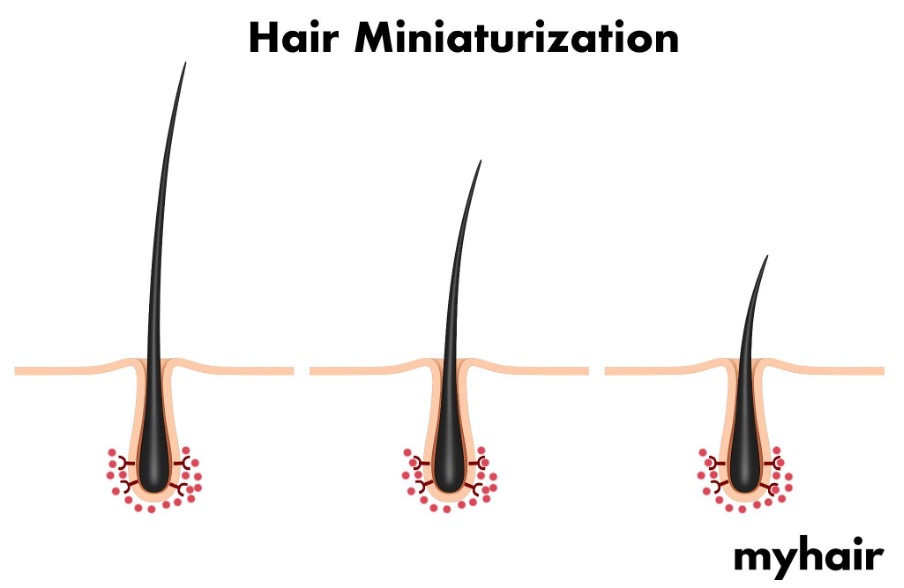You were probably told as a kid that vitamins are good for you. The food pyramid and five food groups were taught to you at school. Your parents made you eat your veggies, claiming it made you healthy.
Vitamins are a major reason why you need to eat fresh vegetables and fruits. Your body requires them to function, and each has a specific and important part to play. They regulate your metabolism in different ways.
What vitamins are good for hair growth and thickness?
Apart from being necessary for your body and mind to work well, certain vitamins can help prevent hair loss and optimize the conditions for healthy, strong hair growth.
Vitamins can help your hair grow if you have a deficiency. They can’t cure hair loss – in fact, nothing can. Some treatments can help a lot, though. Certain studies, like this publication in the Journal of Cosmetology & Trichology, have even used popular hair loss treatments alongside nutrient supplements to help restore hair growth.
Certain vitamins can help provide the best conditions possible for preventing further hair loss and stimulating hair growth. A lack of these vitamins might mean that you’re not consuming a healthy diet. However, it could also mean that your metabolism isn’t functioning as it should or that your gut isn’t absorbing the nutrients you’re eating. In these cases, your hair follicles might not be able to absorb the nutrients they need to grow or might not be getting them as fast as they could.
If you have a vitamin deficiency, it might be one of the reasons you have a hair loss problem. Fortunately, certain vitamins can help promote healthy skin and hair growth by supplementing your current intake.
Vitamins C and E
Vitamins C and E are essential nutrients, but they’re also antioxidants. Antioxidants help prevent the damage associated with free radicals, which causes oxidative stress.
The Mayo Clinic says that free radicals are compounds that are created when you convert food into essential energy. They can also be taken in by your body through air pollution or cigarette smoke, or other environmental hazards.
Free radicals can cause damage to your cells and are associated with various health problems. According to a study in the journal Dermatology Practical and Conceptual, oxidative stress has also been associated with different types of hair loss.
Beyond protecting your body from free radicals, a study in Dermatology and Therapy reported that vitamin C helps your body absorb iron, an essential mineral that helps carry oxygen around the body through your blood. It’s important to make sure you’re getting enough vitamin C as too little can lead to scurvy and in turn, symptoms of hair loss.
Vitamin E is also more than just an antioxidant. According to the National Institutes of Health, this vitamin helps maintain the health and function of your immune system, blood vessels and metabolism. A study in the Tropical Life Sciences Research journal reported that this vitamin E might be able to reduce oxidative stress in the scalp, which in turn benefits both skin and hair.
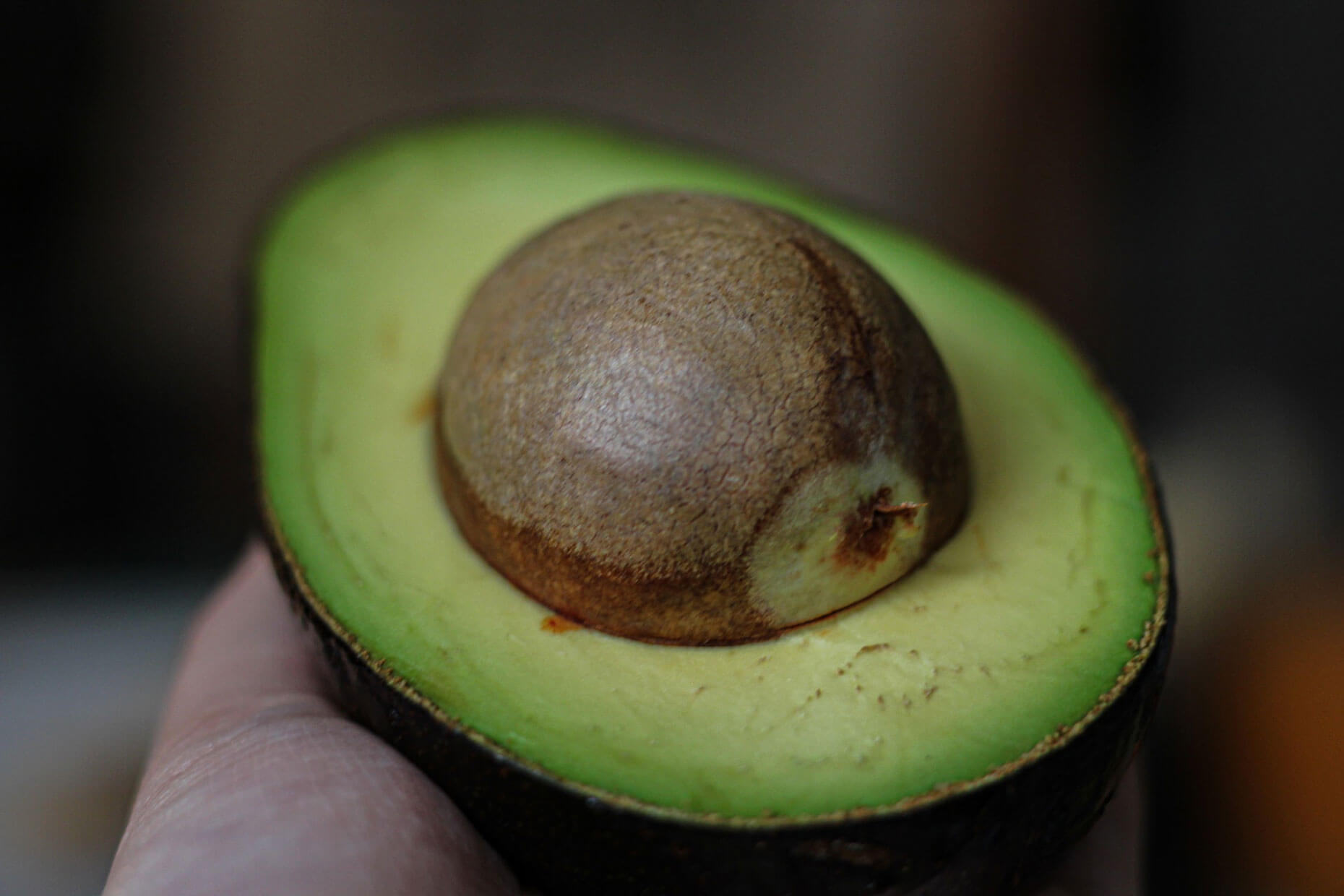
Avocados are a good source of both vitamin C and vitamin E
B-complex vitamins
There are eight different B-complex vitamins.The Harvard T.H. Chan School of Public Health says that these help break down the macronutrients you eat, allowing protein, carbohydrates and fat to be processed efficiently. The B-vitamins perform a variety of other roles, like helping transport oxygen and nutrients around your body and supporting the function of your brain and nervous system.
B-complex vitamins are also important for healthy skin and hair. The studies in Dermatology and Therapy and Dermatology Practical and Conceptual say that deficiencies in several of these B-complex vitamins (niacin, riboflavin, biotin, folate, and vitamin B12) have been associated with hair loss.
It’s a good idea to make sure you eat a diet containing all the B-complex vitamins since they work together in your body. Alternatively, ask your doctor, dietitian, or nutritionist to recommend healthy foods or a nutritional supplement that contains them.
Niacin (Vitamin B3)
Niacin, also known as nicotinic acid, nicotinamide and vitamin B3, is part of a group of organic compounds that kickstart the energy reserves. This nutrient is also important for your skin cells. The Journal of Cosmetic Dermatology reported that niacin can help promote keratin production. Keratin is a protein that’s important for skin and hair regeneration and growth.
Vitamin B3 is naturally found in many foods. The National Institute of Health says that foods with high quantities of niacin include beef, poultry, salmon, rice, tomato sauce, and peanuts.
Pantothenic acid (Vitamin B5)
Vitamin B5 is also known as pantothenic acid. Like other B-complex vitamins, this nutrient helps break down food into energy. You can find vitamin B5 in a wide variety of foods, including eggs, dairy, mushrooms, cauliflower, legumes, and leafy green vegetables.
While vitamin B5 on its own doesn’t directly promote hair growth, an article in the Journal of Research and Pharmacy Practice reported that this nutrient can influence hair growth and diameter. Another study, from Przeglad Menopauzalny, said that it can also help prevent early hair graying, maintain hair follice and scalp health, and reduce inflammation.
Vitamin B6 (Pyridoxine)
Vitamin B6 helps support your body’s immune system function and metabolism. The National Institutes of Health says that it’s vital for making hemoglobin, a protein that transfers oxygen to your cells. Without enough hemoglobin, your cells won’t get enough air. A study published in the Wiadomości Lekarskie Journal also reported that supplementation of this nutrient can help improve conditions for hair growth and reduce the amount of hair loss.
If you’re not getting enough vitamin B6, you might be feeling tired all the time, weak or lethargic. You may also become anemic, or experience skin and oral health problems. Foods like beef, tuna, poultry, potatoes, chickpeas, and bananas can help you increase your vitamin B6 intake.
Biotin (Vitamin B7)
Biotin, also known as vitamin B7 or vitamin H, is the only B-complex vitamin that your body is able to produce. However, you can also get your recommended daily amount of biotin from the foods you eat, especially protein-rich plants or meat products.
The Dermatology and Therapy Journal says that biotin is one of the vitamins that has been associated with hair loss. Insufficient biotin can be a genetic issue or due to illness, but it might also be due to your diet. Do you like blending raw eggs into smoothies or protein shakes? That trend can actually cause biotin deficiency.
Biotin deficiency is rare but can lead to skin problems, hair loss symptoms, and brittle nails. If you suspect your biotin deficiency is due to your love of eggs, don’t worry — it’s only raw eggs that cause this problem. Cooked eggs are actually great sources of biotin.
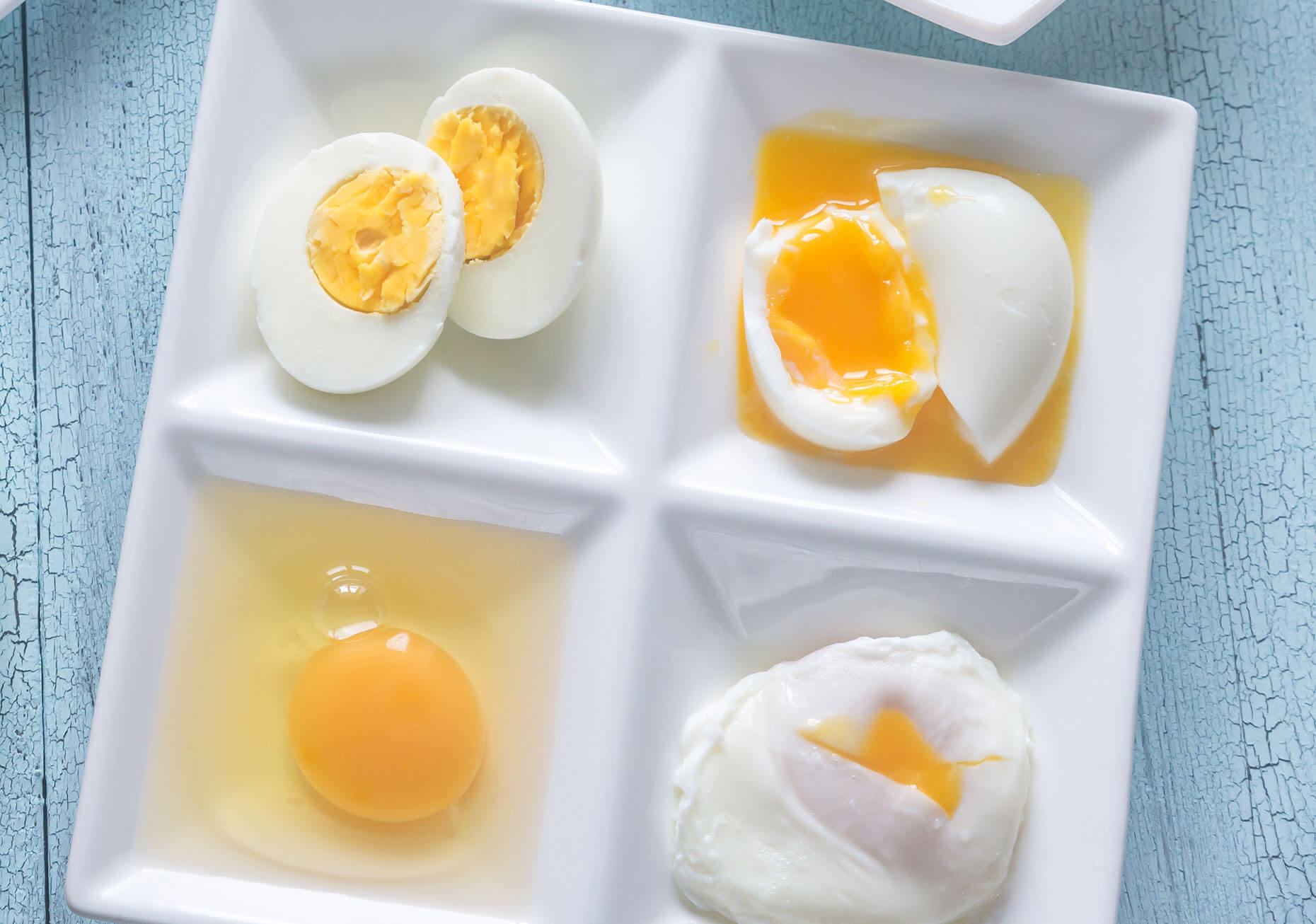
Regardless of whether they’re boiled or poached, cooked eggs are more nutritious than raw eggs
Other important facts about vitamins
If you have a vitamin deficiency, your hair growth can be inhibited if your body isn’t functioning the way it should. Blood circulation, enough nutrients being absorbed by your hair follicles, and optimal conditions for your scalp and skin and hair cell regeneration are all factors that are necessary for healthy hair growth.
Ideally, you should be able to get all of your essential nutrients from the foods you eat. Most people can consume a balanced diet to prevent hair loss and promote hair growth. Unfortunately, this doesn’t work for everyone, and some people need extra amounts of certain vitamins or minerals. Taking a supplement can help restore hair growth in people who are deficient in specific nutrients.
Supplements aren’t for everyone, though, and too much of a good thing isn’t always healthy. If you already consume a healthy diet and don’t have a vitamin deficiency, getting more than your share of vitamins may have a counter-effective impact.
If you want to take vitamins to optimize your health, make sure you primarily consume water-soluble vitamins in order to avoid this problem. Water-soluble vitamins like the B-complex vitamins won’t be absorbed by your body if you already have enough in your system. If you ever consume too much, they’ll simply be flushed out of your body.

